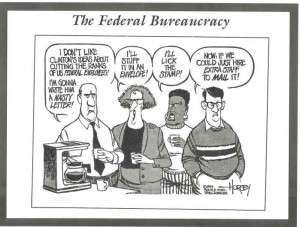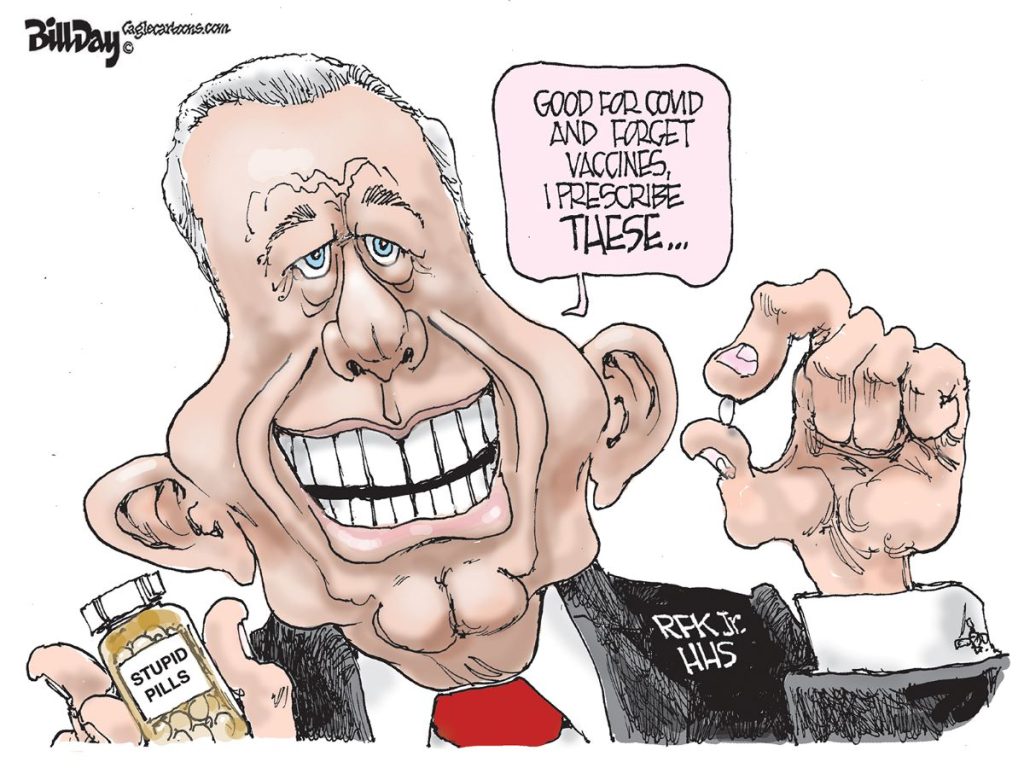We don’t know if changes to the civil service system will be in the proposed charter of the Metro Charter Commission. It’s too early to tell despite the kneejerk reactions of some union leaders who likely hadn’t even read the report when they excoriated it.
All of this will sort itself out as the Charter Commission continues its difficult work, but here’s the thing: Civil Service as it is presently structured and defined is in need of serious, comprehensive reform. It doesn’t protect the good employees who make up the majority of the public workforce. Rather, it holds them captive in a system that grinds them into conformity, lowered expectations and low common denominator achievement.
Before you try to categorize us, we hasten to add that there is experience here as part of the civil service system, as union members and as managers. But regardless of our perspective, we agree that the civil service system – wisely created a century and a half ago to combat an age of political bosses – is largely archaic and inhibits a culture of innovation within both city and county governments.
New Ways of Thinking
There’s broad consensus among people who care about government that it must be more entrepreneurial, it needs to break down barriers to new thinking, it needs to cross-train employees, it needs to create operational teams, it needs to develop agents for change and it needs to shed group thinking and the ineffectual management system that stifles creativity.
The existing civil service in city and county governments helps none of these changes take place. Acting on an attitude of scarcity (if you’re winning, we must be losing), unions have lost their way, and because of it, they find themselves with declining today. And yet, they are just as essential today as they have ever been, but they have lost backing because of their resistance to adapting to changing times and public expectations.
For example, some teachers’ unions have become part of the solution rather than part of the problem by engaging in processes to improve schools, to develop school reform programs and to conceive of new charter schools. And because of it, they find themselves with renewed influence and revived credibility in some cities.
Race
It’s no surprise that discussions about civil service in Memphis are laden with racial overtones. Public jobs have special importance because for way too long, the only way into the middle class for African-Americans was either a job on the railroad or a job in city schools or local government. In fact, even today, much of the African-American middle class is found in these same places, and so any suggestion to change things is interpreted as an attack on that same middle class.
By and large, employees in city and county governments are motivated by an understanding that public service is a special responsibility. But it’s the worst-kept secret in local government that the best of the best treat public employment as training grounds for the next job, particularly when it comes to professionals. Part of the problem is that the present civil service system results in the talented and the inept being treated largely as the same, with the same protections, the same benefits and the same barriers to removing them.
It’s not primarily about management-worker issues. More to the point, it’s about the issue of better government and more effective government. The truth is that no one knows more about how to improve government than its own workers and its own unions, but the structure and system of government itself seems to place more value in conformity than merit.
Because it is so, governments across the U.S. are improving their civil service systems, pushed by public demand for new approaches to old problems and the need to quit putting process over purpose. Today, civil service is a byzantine system of myriad classifications, compensation system that awards pay raises despite performance and volumes of rules and regulations.
No Political Litmus Test
That’s why calls for improvements to civil service systems aren’t some right wing agenda. It’s an agenda item for politicians of all stripes, including the Obama Administration and the always liberal San Francisco government.
According to San Francisco Mayor Gavin Newsom, civil service reform must:
Respond to a changing workforce by modernizing the classification plan “to create broader and more dynamic definitions of work which better reflect technology’s influence and the changing service needs of the city.”
Engineer more efficient civil service hiring processes to speed up hiring of employees.
Focus on performance to inspire excellence in a healthy personnel system.
Open doors to career development to provide adequate training and professional development.
Rationalize separation procedures so removing poor performing employees doesn’t take extended period of times.
Modernize and simplify the governance of our personnel system.
Paying for Results
Meanwhile, John Berry, director of the Office of Personnel Management, said the Obama Administration is “laying the groundwork for the reform effort” by focusing on similar themes to Mayor Newsom –performance accountability, pay flexibility and professional training.
He said that overhauling the categories of government classifications – a serious need in Memphis and Shelby County Governments – would end the “paper-pushing operation” for a “much different workforce today, a higher-educated workforce tackling very sophisticated problems.” He said that the current rigid job classification system should be improved to allow employees more movement within agencies.
Mr. Berry has abandoned the use of the phrase, “pay for performance,” because federal employees consider it heresy, but said he wants a system that focuses more on results than process and links individuals’ actions to agency goals. He said that Washington – we could substitute Memphis and Shelby County – needs to “convince the taxpayer that we are holding ourselves accountable to produce results.”
In the end, changes in civil service will give employees greater freedom. “I’m a strong proponent of breaking the chain to the desk and breaking the chain to the time clock,” he said. Government needs to “move in a direction to empower and trust our employees to get the job done…and not focus so much on where they’re sitting and what hours they’re sitting there. “ In other words, it’s all about managing performance, and it’s rare within government for the high-performing employees to complain about being judged on this basis.
Victimized by the System
He said an executive order is needed for an attack on the dysfunctional system, and it’s a goal needed for our community as well. And whether they know it or not, union members are victims of a civil service system that treats them as a commodity and rather than integral parts of a progressive system of government.
There will be the customary cries from union leaders and even editorial writers that civil service ensures a nonpolitical environment for public servants. Of course, even the most naïve observer of local government knows that is a red herring, and the best course of action for public employees is to operate within a better system that proves to taxpayers that they are serious about their jobs and even more serious about delivering the results that are needed to turn this city around.
In the end, it’s not really about reforming civil service. It’s really about reforming government itself.


